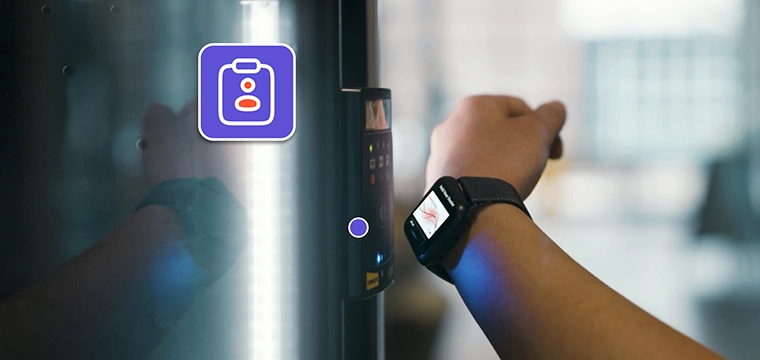Pioneering FSUCard embarks on next chapter selecting new bank and electronic financial aid delivery partner
 Florida State University and its FSUCard program are credited with helping to pioneer campus card banking partnerships. The university inked its first deal twenty-years ago and have been evolving the ID-bank relationship ever since. This spring the campus is going through the process of selecting a bank partner for the next evolution of the program. It seems an ideal time and an ideal program for a profile of what such a relationship can yield.
Florida State University and its FSUCard program are credited with helping to pioneer campus card banking partnerships. The university inked its first deal twenty-years ago and have been evolving the ID-bank relationship ever since. This spring the campus is going through the process of selecting a bank partner for the next evolution of the program. It seems an ideal time and an ideal program for a profile of what such a relationship can yield.
The Tallahassee, Fla.-based institution enrolled 40,225 students in 2009. There are currently almost 50,000 active FSUCards and a staggering 27,000 cards are produced each year for newcomers and replacements. According to FSUCard Program Director, Richard Wynn, about 14,000 of these cards are for first-time FSUCard holders and an estimated 8,500 of those typically opt for the bank account offering.
For virtually every active FSUCard there is an account with the program’s long-standing bank partner SunTrust. In 2009 there were 43,500 active SunTrust accounts associated with FSUCards.
It is undeniable that the FSUCard has demonstrated that a contractual, exclusive relationship with a campus card program can bring account holders to a financial institution. Without this relationship the bank would certainly have won a percentage of FSU student business, but this volume of accounts could never be achieved in a normal competitive landscape.
But have the accounts brought deposits to the bank or are they simply holding accounts that take up space with little utilization? This question has loomed as long as there have been campus card and bank partnerships. Do the accounts bring value, and actual revenue, to the bank or are they, as some have suggested, unprofitable during the college years but valuable if they transition to long-term relationships?
The FSUCard experience suggests that such a relationship can be valuable in and of itself.
In 2009 the monthly average funds on deposit in FSUCard accounts exceeded $34 million dollars. The average individual account balance was $787.
Adding associated products offered to FSUCard holders–such as personal savings accounts, checking accounts, money market accounts and even commercial accounts–the average balance for the comprehensive relationship approaches an average monthly balance of $50 million.
Financial aid delivery has been key in the success of the program. In addition to pioneering the campus card and bank partnership, the FSUCard program was also a pioneer in the electronic disbursement of financial aid. In the mid 1990s, the FSU began evaluating methods to ease the cumbersome process of issuing checks to students for net financial aid proceeds.
Other early innovators had enabled delivery to bank accounts but FSU saw benefit in restricting this delivery to a single account provider: the one associated with the FSUCard. This would make it easy to manage because the account would not change if a student switched banks. They would have only two choices: opt for rapid electronic delivery to the FSUCard account or wait in line to receive a paper check days later.
It succeeded in easing the burdens with net check issuance and it improved customer service. But it also created a tremendous peripheral benefit for the institution by driving the number of students signing with the bank partner through the roof and bringing huge influxes of cash into the program at the start of each semester.
In one of the initial financial aid disbursements, $12 million dollars flowed into the accounts overnight. They knew they were on to something.
But would students simply use the FSUCard bank account as a receptacle to get their money more quickly but then withdraw or transfer the balance to their normal bank account? Bank and FSUCard officials prepared for a “run” on the branch and ATMs, but their fears went largely unmet. There was certainly a movement of money to other accounts but the vast majority began to use the FSUCard account.
In the decade and a half since the launch, this trend has continued and the account’s usage has become the norm for students, especially financial aid recipients.
In 2009, 26,000 students received some form of aid in both the spring and fall terms. Additionally, 6,500 receive aid for the summer semesters. Of this aid, 80% was delivered electronically to the FSUCard accounts. In the Spring 2009 semester, the aid distribution to SunTrust accounts exceeded $54 million dollars. For the 2009 school year, it topped $100 million.
What does SunTrust pay for this exclusive access to provide services to the FSUCard?
Each year, 1.2% of the average monthly funds on deposit in the FSUCard accounts is owed to FSU. For 2009, this amount was roughly $410,000. The monthly payments bring about $34,000 in operating funds to the program.
In addition, SunTrust provides an annual marketing contribution of $18,000 to help promote the program.
The bank also pays $2,453 in monthly rent for the 2,900 square feet of prime office space in the center of campus. Utilities are paid by FSU so the total annual amount for space is $29,436.
Finally FSU earns $0.35 for each foreign ATM transaction conducted with an FSUCard.
The future of the program
In June 2010 the next generation FSUCard will hit the street. It will look very different than the current version, and it may or may not have a new bank partner. The submitted proposals are in the hands of the University’s purchasing office and a committee has identified a “shortlist” of providers to participate in verbal presentations via an invitation to negotiate process.
If a new partner is selected, it will not be the first time the FSUCard program made such a swap. SunTrust is the fourth bank partner. It can be done, but not without significant pain. This time around, the level of this pain would undoubtedly be far greater because of the program’s success.
To differing degrees, more than 40,000 members of the University community have grown accustomed to using their SunTrust account. As with any other account, many have set up bill pay, opened other accounts with the institution, taken loans, and built personal relationships with staff. This cannot be undone–practically or legally–with the award of an invitation to negotiate or the issuance of a new piece of plastic.
The relationship between the account holder and SunTrust is independent of FSU. If another bank partner is selected, the reissued FSUCards will have a different bank logo, but the cardholders will still have an active account with SunTrust. If an individual wants to use the FSUCard account or receive electronic financial aid distribution, they will need to open an account with the new bank. Even then, however, they will have an active account with SunTrust.
No one can predict the number of cardholders that would elect not to migrate to the new provider but it is certain that some would stay with SunTrust. Another group would most certainly open the new account to receive the financial aid delivery only to withdraw and move it to their SunTrust account.
On the other hand the FSUCard program will still be strong and viable regardless of the bank selection. It could take years, but through normal student attrition the accounts would almost certainly return to current levels. But how would this decrease in accounts and funds on deposit impact the revenue stream enjoyed by the FSUCard program? No way to know but matching or exceeding current revenues would be a likely requirement to arise during the negotiation.
Goodbye chip, hello second mag stripe?
As mentioned the FSUCard will look very different in the near future. The program is ending what has become the campus card industry’s longest running smart card program. The gold contact chip that first appeared on FSUCards back in 1996 is going away in favor of an online mag stripe-based solution from Blackboard Transact.
Other changes may include a major payment brand on the card for the first time. According to the invitation to negotiate, “the University is considering a Visa or MasterCard branded signature debit card as the FSUCard.” The request asks respondents to describe their process for instant issuance of such a card.
Further the invitation to negotiate suggests that a second mag stripe may be on the horizon. “In order for FSU to continue using their ISO (with the addition of a branded financial account) we believe … dual two-track magnetic stripes will work to solve this problem. One magnetic stripe would be a banking Visa/MasterCard stripe and the other would be a FSU magnetic stripe.”




